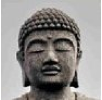Any Other Buddhists Out There?
AliceKathleen
Yellow-bellied Woodpecker


Joined: 21 Aug 2010
Gender: Female
Posts: 63
Location: Oceanside, California
Hello, I have been a member of a pureland Buddhist Church since 2006. At present, I attend Vista Buddhist Church.
I find that I am calmer and a bit more centered since I began to attend. There is less frustration and anger, and
daily life is more rewarding. Anyone else here follow the Dharma?
Buddhist Church?!?
n.
1. a building for public Christian worship.
2. a religious service in a church.
3. (cap.)
a. the whole body of Christian believers; Christendom.
b. any major division of this body; a Christian denomination.
4. a Christian congregation.
5. organized religion as distinguished from the state.
6. (cap.) the Christian Church before the Reformation.
7. the profession of an ecclesiastic.
v.t.
8. to perform a church service for (a woman after childbirth).
I am afraid I have doubts of any group calling themselves 'Buddhist Church' …
Btw, I wrote my graduation thesis on Shinran 親鸞 - particularly on his 教行信証s 真仏土巻. I later went on to study other schools for postgraduate though.
I am saying this because you mention your 'church' claims to associate itself with:
Jodo Shinshu, however, has temples, not churches.
Be careful with what you are in ...
I find that I am calmer and a bit more centered since I began to attend. There is less frustration and anger, and
daily life is more rewarding. Anyone else here follow the Dharma?
I'm glad you are happier.
However, going to a church or temple isn't following the Dharma.
The Dharma is the pathless path.
The true Dharma is realization of the Absolute.
The true Dharma is the letting go of all desire, concepts, ideas, categories, beliefs, duality, etc...
Realize the One nature, ie. 'Not two' Advaita Vedanta~Non-dualism.
Namaste.
Realising the absolute ('the one', brahman) is the goal in advaita vedanta indeed, but not in buddha dharma.
There is no absolute in Buddhism.
I still find Mūlamadhyamakakārikā the best text to read if you wish to understand this point. Read either in Sanskrit, Tibetian or Chinese, as far as I know both Tibetian and Chinese translations are considered accurate though, being a visual thinker, I personally prefer Chinese. It really drives the concept of pratītyasamutpāda home. Very enticing text.
There is no absolute in Buddhism.
I still find Mūlamadhyamakakārikā the best text to read if you wish to understand this point. Read either in Sanskrit, Tibetian or Chinese, as far as I know both Tibetian and Chinese translations are considered accurate though, being a visual thinker, I personally prefer Chinese. It really drives the concept of pratītyasamutpāda home. Very enticing text.
Atman = Brahman = An-Atman = Tao = the No-state state = the pathless path = the One/Oneness = the Absolute
at the deepest level this is true, don't you think?
to say that the true Nature of reality is the Self is equivalent to saying is that the true Nature of reality is Non-Self/No-self.
every thing is equivalent to its own negation
eg. in = not-in aka out
here = not-here aka there
high = low
being = non-being
thing = no-thing
atman = anatman
and so on
if you disagree please elucidate...I will listen...I don't profess a full understanding to say the least
in = not-in aka out
here = not-here aka there
high = low
being = non-being
thing = no-thing
atman = anatman
That's pure dualism.
Both in and out stand as separate, still. Like milk and coffee. One does get a caffe latte but it's still 'a mix of milk and coffee' (even worse, milk, coffee powder and hot water, actually!)
如是我聞 When we speak of śūnyatā, we speak of a state of
not in, not not-in,
not in and not-in both in one,
or neither in or not-in either
not out, not not-out
not out and not-out both in one,
or neither out or not-out either
not here, not not-here
not here and not-here both in one,
or neither here or not-here either
not there, not not-there
not there and not-there both in one,
or neither there or not-there either
….
An-atman is not atman as the brahman.
The moment we say something is (exists) we are talking in the world of dualism. "This is" presumes there is something that is not. That's dual. 1) is, and 2) is-not.
not is, not not-is
not is and not-is both in one,
or neither is or not-is either;
the absence of unchangeable essence, the impossibility to grasp the core of any dharma (phenomena/ things/ events / happenings) is what's under scrutinization when we discuss things like anātman, śūnyatā, pratītyasamutpāda or tathatā.
All that we in our dualist daily experience perceive as solidly 'existing' exists only as a product of multitude of factors, both 'internal' and 'external' ...
What is the reality of things just as it is? It is the absence of essence.
- Buddhapālita-Mūlamadhyamaka-vṛtti
Prajñāpāramitāhṛdaya is famous for stating that even the five skandhas are 'empty' - in other words,
not something that is, not something that is not,
not something that is both is and is-not,
neither something that is neither is or is-not.
All dharmas (phenomena/ things/ events/ happenings) are 'empty' - they are neither created or non-created, neither both created and non-created at the same, or neither created or non-created. They are neither destroyed or non-destroyed, neither both or neither. Neither defiled or non-defiled, neither both or neither. Neither pure or non-pure, neither both or neither...
There is no true nature, no non-true nature,
no true-and-untrue-nature,
no neither-true-nor-untrue-nature.
There is no deeper level, no not-deeper level …
At least, 如是我聞。
It seems to me that mixing things up, based on one's current way of perceiving things, doesn't help with understanding what the people who were using these words wanted to convey...
(PS1 anātman, śūnyatā, pratītyasamutpāda and tathatā too, are all used to convey a different aspect, and there are many other words).
(PS2, on practical level, we use 'awareness' to perceive the floatingpoint of suchness)
in = not-in aka out
here = not-here aka there
high = low
being = non-being
thing = no-thing
atman = anatman
"That's pure dualism."
Please forgive my illusions.
To say that high and low exist is dualism.
But, that is not what I said.
I said that high IS low or is equivalent to low, which means that there is no separate high and a separate low.
high does not actually exist
low does not actually exist
if you have high it CREATES low because it is a dichotomy.
to say high = low is to say that there is no dichotomy/no dual
to say high = low is non-dualistic








